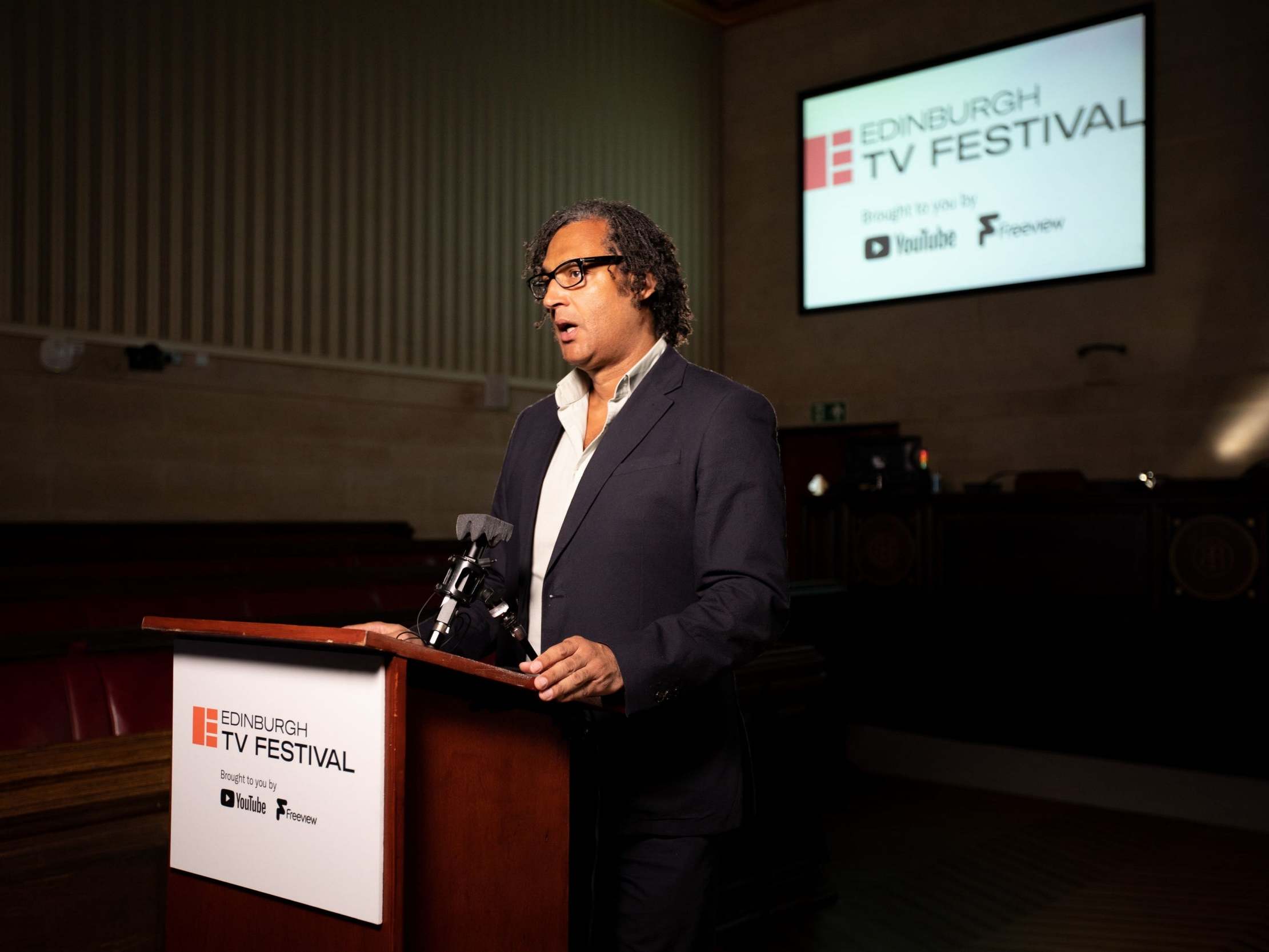I've always had a problem with British TV. When David Olusoga spoke out about racism in television, I understood why
Programmes in the UK are aimed at a small town, village demographic – not multicultural, urban viewers. It just doesn’t look like a good deal of Britain and the world


A guy walked up to me at London City Airport and told me how much he liked me on TV. A lot of the people in the lounge were looking at him. I had no idea who he was.
After we landed, he invited me to skip passport inspection and take a ride in his limo to the VIP exit where I could get my passport done ASAP. He then told me his name. Rang no bells.
We shook hands, he asked me for my number. I gave it to him because he was a nice, harmless person and we parted.
I won’t say his name because that is not the point. The point is that I didn’t know his name because I hardly watch television. I watch docs and vintage movies, stuff like Poirot and I like Midsomer Murders, but that is it. I hardly watch the news.
I have lived in the UK half my life and I realised long ago that I don’t really like British TV. But it wasn’t until David Olusoga’s address at the Edinburgh Festival that I understood why. British TV is not urban/metropolitan/multicultural television. It is small town and village TV.
Even with daring subjects, it aims for that particular demographic, whether it is conscious of it or not.
Take Midsomer. Somebody once associated with the show, when asked why there were no people of colour in it, said something like, “Why would there be?” Now, every other person on the show is a person of colour, which is great because I like imagining this Somerset-like county full of ethnic minorities. And I am not going to use the word “diversity” because I’m tired of hearing it.
Just hire people – people of colour to make television look like a good deal of Britain and the world.
The sad thing is that the industry is no different from the rest of the culture: school-clustered/old-school tie, selection-by-dinner-party, who you know and who knows you.
Of course this puts minority people at disadvantage because we too often do not make those circuits and are not invited there. So for David to say that he is a survivor also means that he has endured what the French call “copinage”. Roughly translated: “The buddy system” or “Who you know”.
These circuits also like “development”. They like “making”. You can never mature as a person of colour, you can never be seasoned. You have to be young. Being young, you can be created and moulded and made safe because the unconscious, inherent assumption is that this is necessary for us. Too many young ethnic minority people who do get work on TV do not realise that they are too often tv fodder. That they will be gone when the first wrinkle appears.
Black women are on TV more often than Black men, even though we are perceived as more scary. Black men are scary, too, but if they are in sports, they’re ok. They are not ok if they do anything else. That’s a threat.
I was told all of this once, and the reason I was told was because I am African American and so, somehow not “Black”. Well, not “Black” like being born in Britain black. You get designated, you see.

Will it change? How?
This is a hard thing to write because there are fine people in British TV; people who see it as a public service, as a true reflector of society and they fight for that. A few are still in the game and I salute them for their perseverance and faith in change. But change takes will and you have to ask the question: is there the will?
I was recently part of an interview conducted by the BBC’s arts editor about museums. Or so I was told it was going to be about. What it became was a kind of debate about the Benin Bronzes, the obsession du jour. We Black people in it spoke, but we were bookended around what became the main frame, an author and his book about museum cultural appropriation versus the director of the British Museum. Them as the main attraction and we Black people – kind of like the Benin Bronzes. Effectively: bronze and silent. Nobody in that piece realised that we were to be a part of a teeny, tiny BLM moment.
This is what structural racism is. It is embedded; part of how you function and are within the system.
I am glad that David Olusoga has spoken out; glad that he gets that they have “let him in”. That they’ve decided that he won’t scare the horses.
But unless the horses are scared, British television will become something that will end up in The Museum of National Consciousness: As a relic.
Join our commenting forum
Join thought-provoking conversations, follow other Independent readers and see their replies
Comments
Bookmark popover
Removed from bookmarks